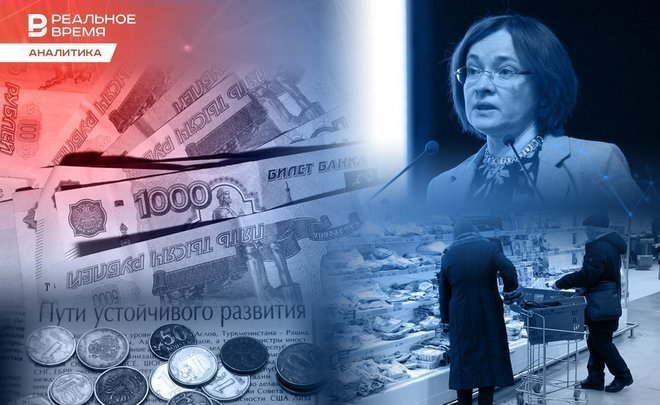Credit emergency
Elvira Nabiullina has offered another holiday — on consumer loans. Is it that bad?

Permanent mechanism for credit holidays on consumer loans operate in Russia from January 1, 2024. It will allow you to avoid making payments on car loans, consumer loans, and credit card debts for six months if the borrower's income has fallen by 30% compared to the average level for the previous 12 months. Last year, Tatarstan residents were issued credit holidays under various programmes for 5.3 billion rubles. At the same time, the demand for this instrument, according to the National Bank of the Republic of Tatarstan, is decreasing compared to 2022. The analytical service of Realnoe Vremya investigated what is the reason for the emergence of the new type of holidays and whether the creditworthiness of Russians has really reached a critical point.
Rescue in case of a decrease in income and emergency
From the beginning of 2024, holiday on consumer loan can be obtained twice — once due to a decrease in the borrower's income and once if he or she suffers due to an emergency situation. Payments can be suspended for up to six months. The borrower will have the opportunity to count on holidays if his or her income has decreased by more than 30% in the last 2 months compared to the average level for the previous 12 months.
At the same time, he or she is obliged to provide the creditor with documents confirming the right to a holiday. The reason for refusal may be, in particular, the bankruptcy of the borrower, a court decision that has entered into force, or an existing credit vacation under another law — for example, for participants in the special military operation.
One can get a holiday only if the amount of the loan or loan does not exceed the maximum set by the Government of the Russian Federation. Currently, the law sets the following limits: 1.6 million rubles for car loans, 450 thousand rubles for other loans and borrowings, 150 thousand rubles for credit cards.
During the holidays, no penalty is accrued (fines, penalties), the creditor does not have the right to collect the collateral or apply to the guarantor. At the same time, interest is accrued in full, the borrower repays them after the end of the holidays. Information about the provision of credit holidays will remain in the borrower's credit history, but will not worsen it.
Russians live on credit
The volume of the loan portfolio of individuals in Russia increased by 6.2 trillion rubles in January-November 2023 — this is a record in quantitative terms for the entire observation period.
At the beginning of December, the portfolio index reached 33.7 trillion rubles, rising by almost 23%, according to the Central Bank's statistics on the banking sector. Over the same period last year, the loan portfolio grew by only 2 trillion rubles, in 2021 the increase amounted to 4.6 trillion rubles.
According to the National Bureau of Credit Histories, the main drivers of the growth of the loan portfolio of citizens in 2023 were mortgages (+27%) and car loans (+36%). The unsecured loan portfolio grew by 16%.
The creditworthiness of the population bothers the Central Bank. A number of cooling measures have been introduced — macroprudential regulation is being tightened and the requirements for down payment under preferential mortgage programmes are gradually increasing.
Loans worth 5.3 billion rubles have been restructured in Tatarstan
In 10 months of 2023, banks in Tatarstan restructured more than 11 thousand loans and loans to citizens in the amount of about 5.3 billion rubles, the National Bank of the Republic of Tatarstan informed Realnoe Vremya.
According to the Federal Law on Credit Holidays for Citizens and Small and Medium-sized Businesses (No. 106-FZ), residents of the republic have been granted credit holidays under more than 300 contracts. The amount of obligations under these agreements amounted to about 128 million rubles. The terms of more than 70 contracts worth about 221 million rubles have been changed within the framework of the Federal Law on Mortgage Holidays (No. 353-FZ). About 11 thousand contracts worth almost 5 billion rubles were restructured by banks by their own programmes.
In 9 months of 2023, compared to the same period in 2022, the number and volume of restructured loans decreased by approximately 40%, or almost 7 thousand contracts worth more than 3 billion rubles. The National Bank explains this by that the demand for restructuring from citizens is decreasing.
One should not expect a lot of demand for credit holidays
“The introduction of a permanent mechanism for credit holidays in a rather unstable economic situation will make it possible to abandon the development of individual provisions, as it was earlier during economic downturns," says Sofya Ostapenko, an analyst at NKR rating agency. “Taking into account the growing share of loans with a high level of debt burden, we assess this mechanism as quite effective in the long term.”
At the same time, the imposed restriction on the number of holiday applies will allow banks to maintain the quality of loan portfolios and will not affect the discipline of borrowers. “For a part of the population, the availability of credit holidays may be an excuse to take out a loan without carefully assessing their risks, but we do not expect that the number of such borrowers will be significant," adds Ostapenko.
In 2023, there was no significant increase in overdue debt in loan portfolios, and therefore, it is unlikely to expect an increase in demand for credit holidays in the first half of 2024.

“There is nothing special about this measure that would allow us to say that now everyone will rush for a credit holiday. This is an absolutely working moment — it was just necessary to provide for such an opportunity," commented Yan Art, a financial expert, member of the RSPP Commission on Banks and Banking, PhD in Economics. “This is not a reaction to a certain problem right now. Therefore, even if not many people take advantage of the holidays now, this does not mean that it was an unnecessary and ineffective initiative.”
“Another thing is that now, of course, the authorities are tempted to introduce some positive solutions that do not require budget spending," says Art.

Moreover, an alarming trend, in his opinion, is the fact that loans are often taken not even for impulsive purchases, but for solving current issues. “This is a very bad moment, because it's not even a wish anymore, but a need. There is still a threat of a credit collapse. Therefore, any mechanism is useful today, but you should not expect super-efficiency from it," he concluded.